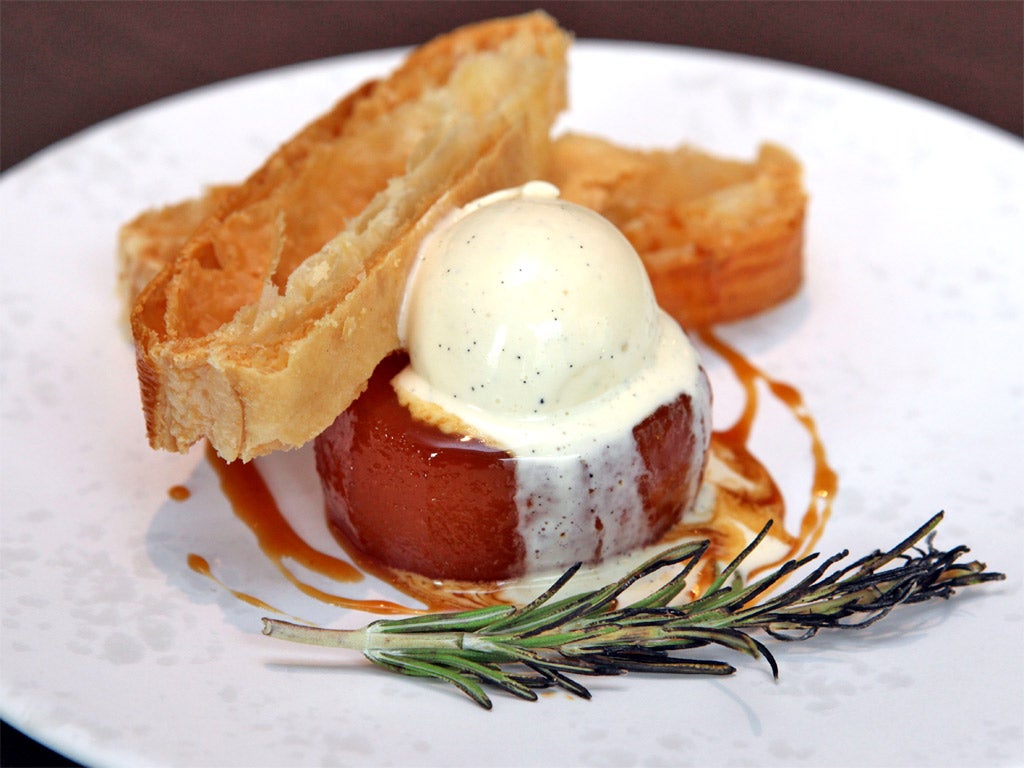Errors and Omissions: Just deserts or just desserts? The proof is in the pudding
Our letters editor reviews a selection of the tastiest slips from this week's Independent

A news story published on Tuesday about the Monty Python court case quoted one of the counsel as follows: “These are not unpleasant shifty people trying to do people out of their just desserts.”
We are dealing here with three nouns. Two of the three are pronounced the same; two are spelt the same, but not the same two.
Dessert (pronounced with the stress on the second syllable): the last course of a meal. Desert (pronounced the same as the above): what you deserve. Encountered most often in the hackneyed phrase “just deserts”. Desert (stress on the first syllable): an arid region where nothing much will grow.
The whole thing is a mess, but professional writers ought to get it right. In the passage above, the correct spelling is “desert”.
That’s lucky
Here is a picture caption published on Tuesday: “An ash cloud rises from the erupting Plosky Tolbachik volcano on the Kamchatka Peninsula yesterday. Fortunately, the 3,085m-high volcano, which last erupted in 1975, does not pose a risk to populated areas.”
That “fortunately” strikes a weird note. Full marks to the Almighty for siting the volcano well away from populated areas; He is clearly aware of health and safety. Obviously, the volcano wasn’t kept away from people’s homes, but the homes from the volcano, and that won’t be down to good fortune.
Cliché of the week
“His decision will pave the way for a significant increase in shale gas exploration” – news report last Saturday. Shale gas exploration, of course, involves the notorious “fracking” process to release the gas. How would you pave the way for the shattering of rock? The imagination fails to form a picture of that.
Note also a common bit of verbiage. The word “significant” should nearly always be struck out. Everything worth reporting is significant. Unless you are actually talking about statistics, “significant” means nothing; it merely creates an impression that something big is going on, without troubling to specify what or how. An honest translation of “significant” would be: “Jolly important, I should think; wouldn’t you agree?”
Who she?
A picture caption on the Style page on Monday referred to somebody called “Kate Middleton”. I think this is a conspiracy. Republicans who wish to undermine the monarchy refuse to use the titles that A-list celebrity royal ladies have acquired by marriage. This has the effect of belittling the Royal Family.
They did it with Diana, Princess of Wales, insisting on calling her “Princess Diana”, as if she were a princess in her own right – thus punishing her husband for his failure to appreciate her overwhelming wonderfulness. Now they have started on the Duchess of Cambridge, calling her “Kate Middleton”, as if her marriage had made no difference to her status at all.
If bylined writers wish to indulge in this silliness, no one can stop them, but when the newspaper speaks with its own voice, as in news stories and picture captions, we should identify the Duchess properly.
Join our commenting forum
Join thought-provoking conversations, follow other Independent readers and see their replies
Comments
Bookmark popover
Removed from bookmarks